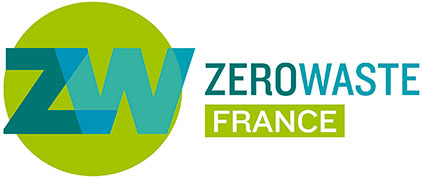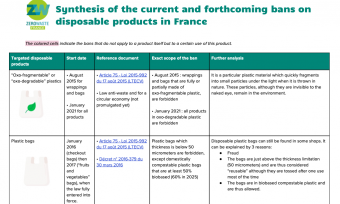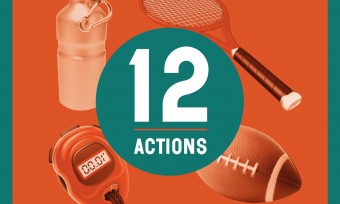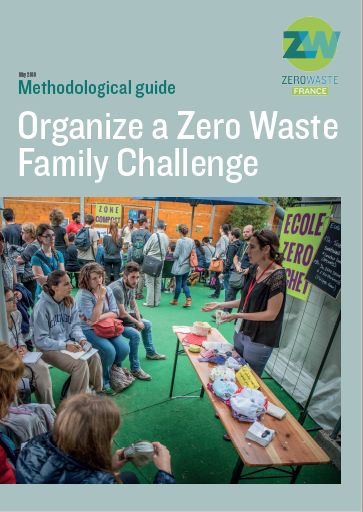Reducing disposable waste
Fighting the « disposable mentality » is at the heart of the Zero Waste approach. It consists in promoting alternatives to daily one-use products, which are responsible for huge amounts of waste and a wasteful consumption of earth re-sources.
The « one-use product » phenomenon is recent in our societies’ history. Designing and producing a product whose lifetime is extremely short, thus causing a significant consumption of resources (each product that is thrown away must be manufactured again) and a considerable amount of waste, would have probably seemed ridiculous to the majority of our ancestors.
The use of disposable products has nevertheless increased exponentially since the 60’s and they are now ubiquitous in our everyday life.
Plastique et emballages, suspects n°1

At the origin of this passion for the disposable is the appearance a new material : plastic. Cheap and light, it is nowadays widely used for the manufacturing of one-use products (packaging, cleaning wipes, hygiene products…). In Europe, every year, 25,8 million of tons of plastic waste are produced, 60% of which coming from packaging.
Less than one third of plastic waste is collected to be recycled. In most cases, plastic one-use products and packaging thus end up in waste landfills or are burnt. Because of their small size and consumption characteristics, a large amount is thrown or left in nature, with catastrophic consequences for the fauna and flora. At the European level, the amount of plastic thrown into the ocean is allegedly comprised between 150 000 and 500 000 tons a year !
Zero Waste France advocates for a drastic reduction in the use of these one-use plastic products, by proposing to legally ban some products such as plastic cups or drinking straws, by asking for an adapted tax which takes into account environmental impact of disposable plastic, and by promoting numerous existing alternatives to plastic.
For a re-introduction of the deposit refund system in France

One of the solutions to reduce disposable packaging is well known : it is the deposit refund system. Until the late 70’s, it was a common system in France ; it then disappeared slowly, excepted in some specific regions (Alsace) or industrial sectors (restaurants, hotels…).
The deposit refund system is simple : when a client buys a product, they also pays a small amount (few cents) and this amount is given back when they bring the container (bottle, pot…) in the shop or in a return spot. In the case the container is made of glass, it can thus be washed and reused. To compare, recycling a glass bottle needs to break the bottle and re-manufacture a new one, which consumes much more energy.
Deposit refund therefore offers many advantages :
- Reduction of waste left or thrown in the environment,
- Saving water and energy thanks to container reuse for glass products
- Savings for the consumer (who doesn’t pay for the one-use packaging) and the manufacturer (who reuses their containers)
Zero Waste France advocates for the re-introduction of this deposit refund system at the national scale, especially to allow glass containers reuse. Apart from lobbying for better policies, the association has co-founded the Deposit Refund Network, an organization which aims at supporting development of refund initiatives.
Support bulk sale
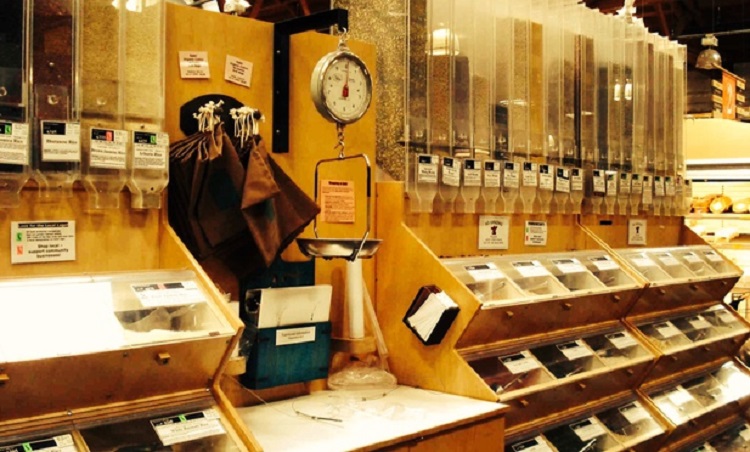
Another alternative to reduce one-use packaging is the bulk sale, which allows everyone to shop with their own reusable or refundable containers.
This system has largely grown over the past few years, supported by consumers and citizens who want to get rid of disposable packaging. If bulk sale already existed in organic shops, 100% bulk groceries have been implemented in France since 2014. Ever since, bulk sale has been expanding !
Zero Waste France supports the expansion of bulk sale, by promoting these new purchasing practices.
Zero Waste France impulsed the creation of a professional organization gathering the agents of this sector, the “Bulk Network”, boasting 450 members in 2018.
The association also works to promote this practice among traditional merchants, for example by giving prominence to the shops that accept to serve clients in their own reusable containers.
